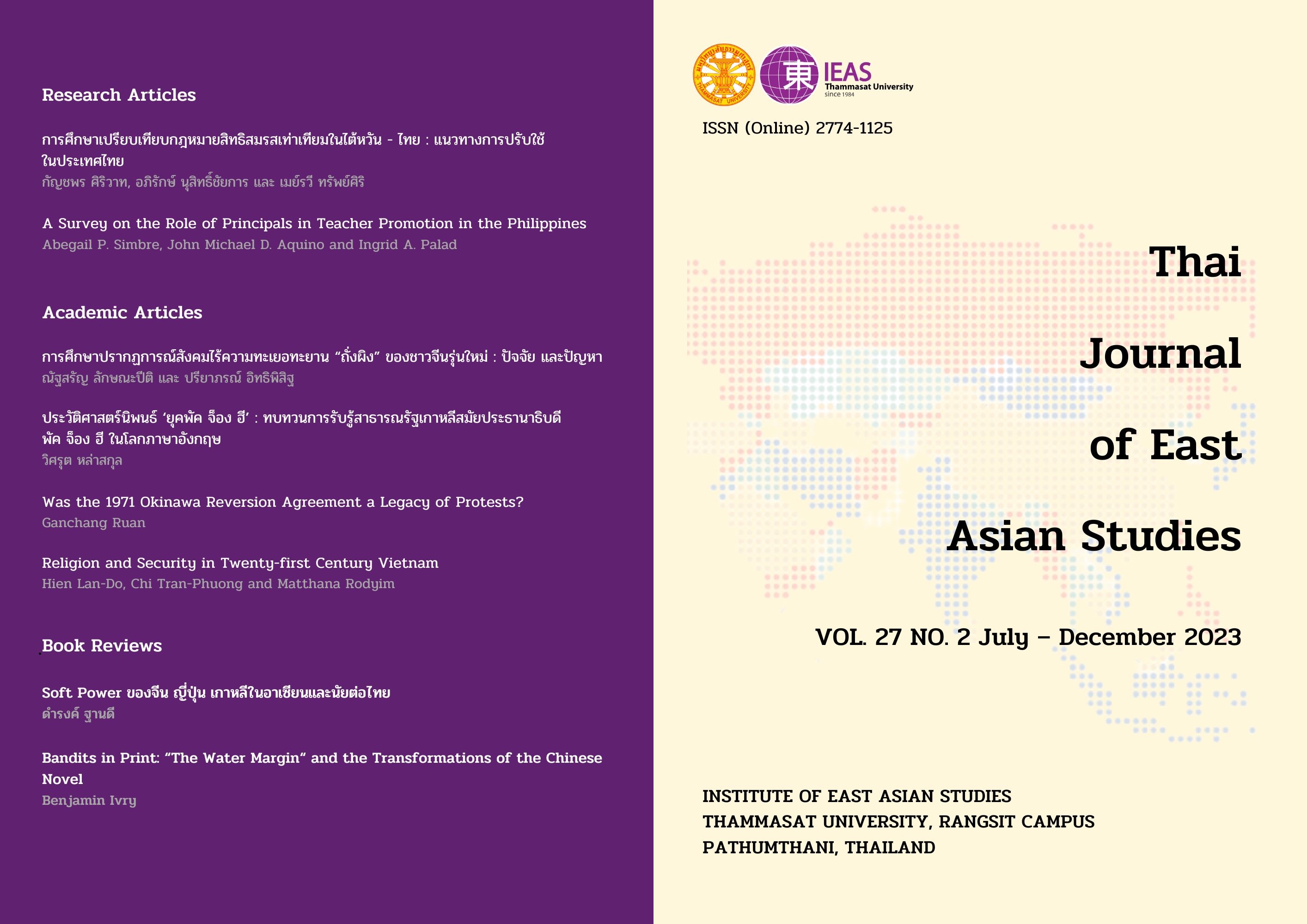Bandits in Print: “The Water Margin” and the Transformations of the Chinese Novel
Abstract
Associate Professor Scott Gregory, who teaches East Asian Studies at the University of Arizona, the United States of America, evaluates how the celebrated 16th century Chinese fictional work Water Margin, more like a chain of interconnected stories than what today is commonly considered a novel, was transformed in different editions.
Intended for different readerships, Water Margin was reshaped by editor-publishers. Since no formal literary copyright system existed, these editor-publishers also rewrote the text when they wished. Instead of being faithful to the original author or authors, who remain unknown, the publishers instead catered to their customers.
Despite the strong echoes of oral literature and storytelling in the book, Water Margin may be said to amount to a series of print appearances and how its publishers were trying to market it. The Water Margin evolved in the commercial publishing industry of the late Ming Dynasty, as succeeding editions responded to questions or problems posed by previous printings. Subsequent editors, some of them well-known writers, established a dialogue with previous editors to reply to their questions or concerns expressed in older versions of the book.
Downloads
References
Hobsbawm, E. J. (2000). Bandits (4th ed.). Weidenfeld & Nicolson.
Hu, W. & Shi, Z. (2015). A Postcolonial Perspective on the Cultural Translation Strategies - A Case Study of the English Version of Shuihuzhuan (All Men Are Brothers). Theory and Practice in Language Studies, 5(3), 581. https://doi.org/ 10.17507/tpls.0503.18
Irwin, R. G. (1960). Water Margin Revisited. T’oung Pao, 48(4/5), 393–415. http://www.jstor.org/stable/4527483
Smith, P. J. (2006). “Shuihu zhuan” and the Military Subculture of the Northern Song, 960-1127. Harvard Journal of Asiatic Studies, 66(2), 363–422. http://www.jstor.org/stable/25066819
Wang, Y. (2019). Lost in Translation: the Motif of Cannibalism as Reconstructed in the English Translations of a Chinese Classical Novel. Neohelicon, 46, 683–697. https://doi.org/10.1007/s11059-019-00481-6
Wu, Y. (1996). Outlaws’ Dreams of Power and Position in Shuihu zhuan. Chinese Literature: Essays, Articles, Reviews (CLEAR), 18, 45–67. https://doi.org/10.2307/495625
Downloads
Published
How to Cite
Issue
Section
License
Copyright (c) 2023 Thai Journal of East Asian Studies

This work is licensed under a Creative Commons Attribution-NonCommercial-NoDerivatives 4.0 International License.



